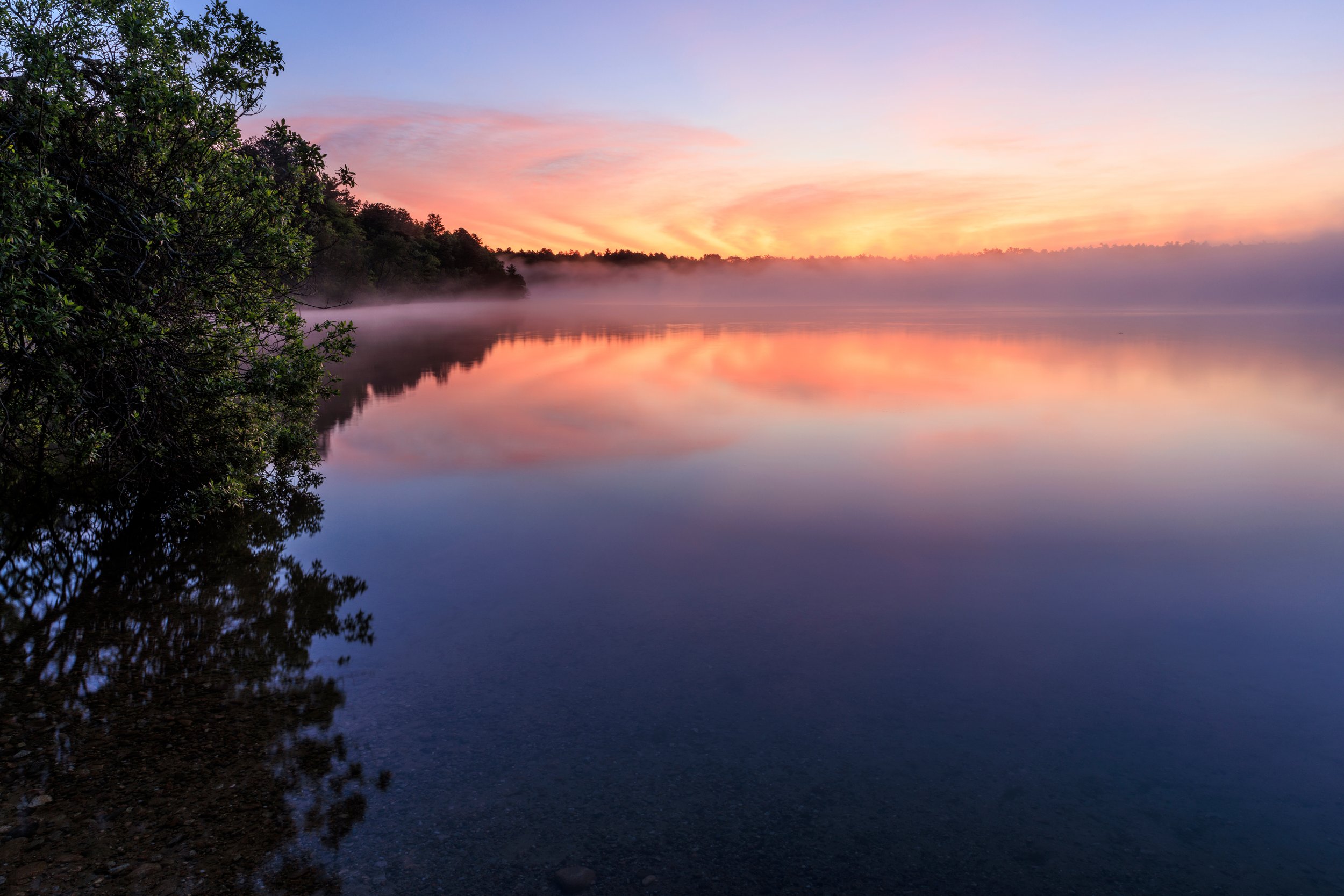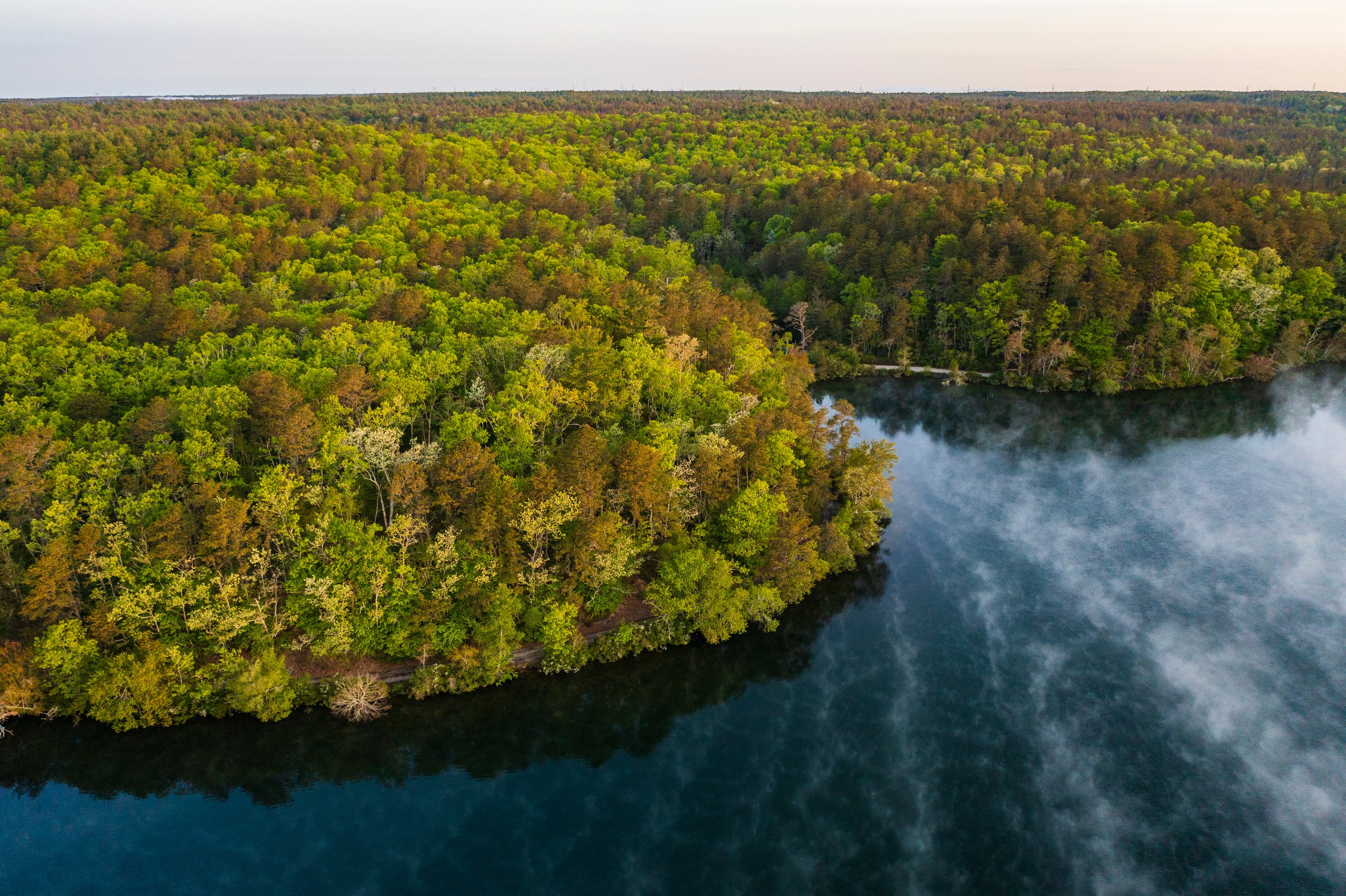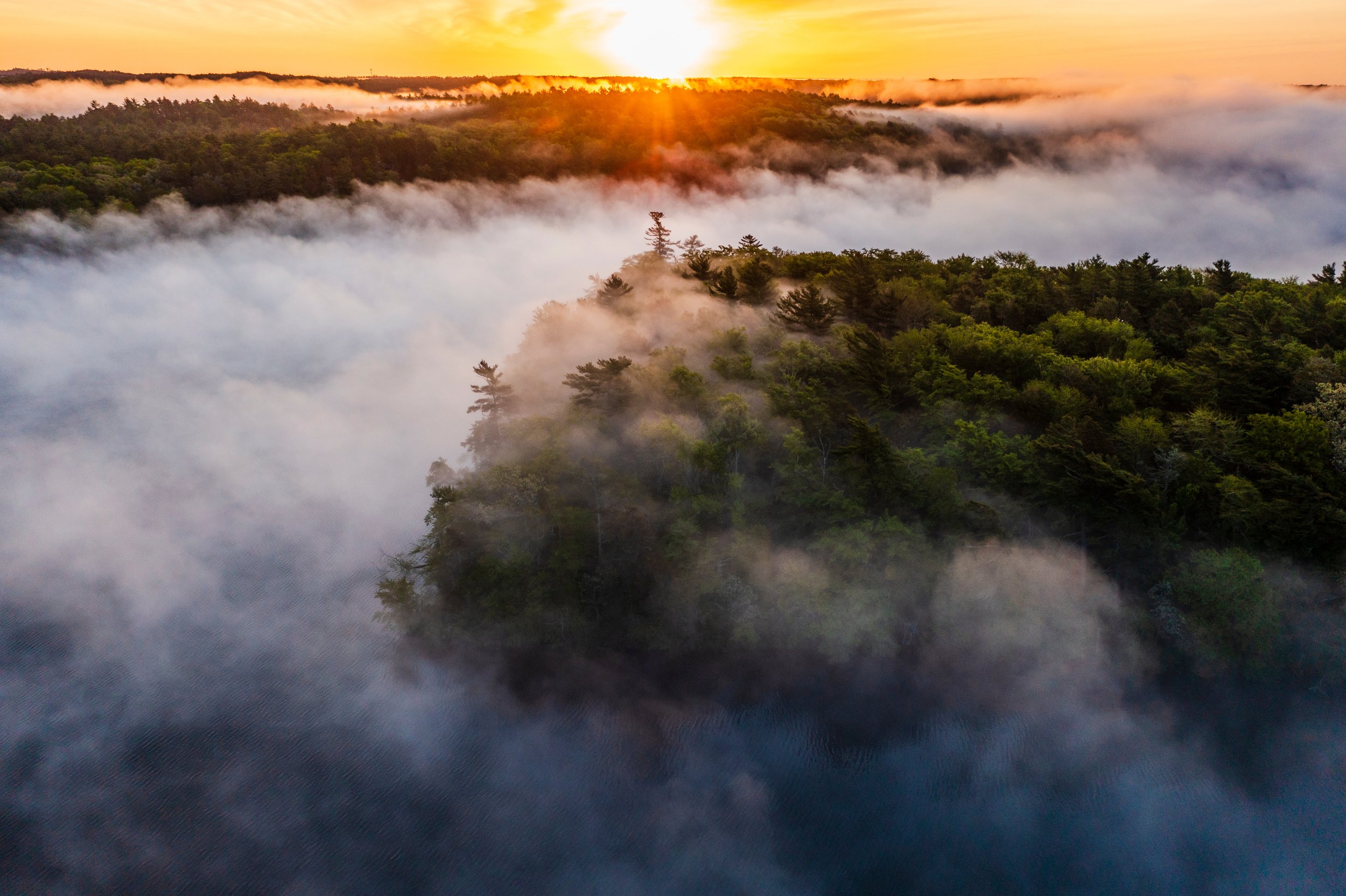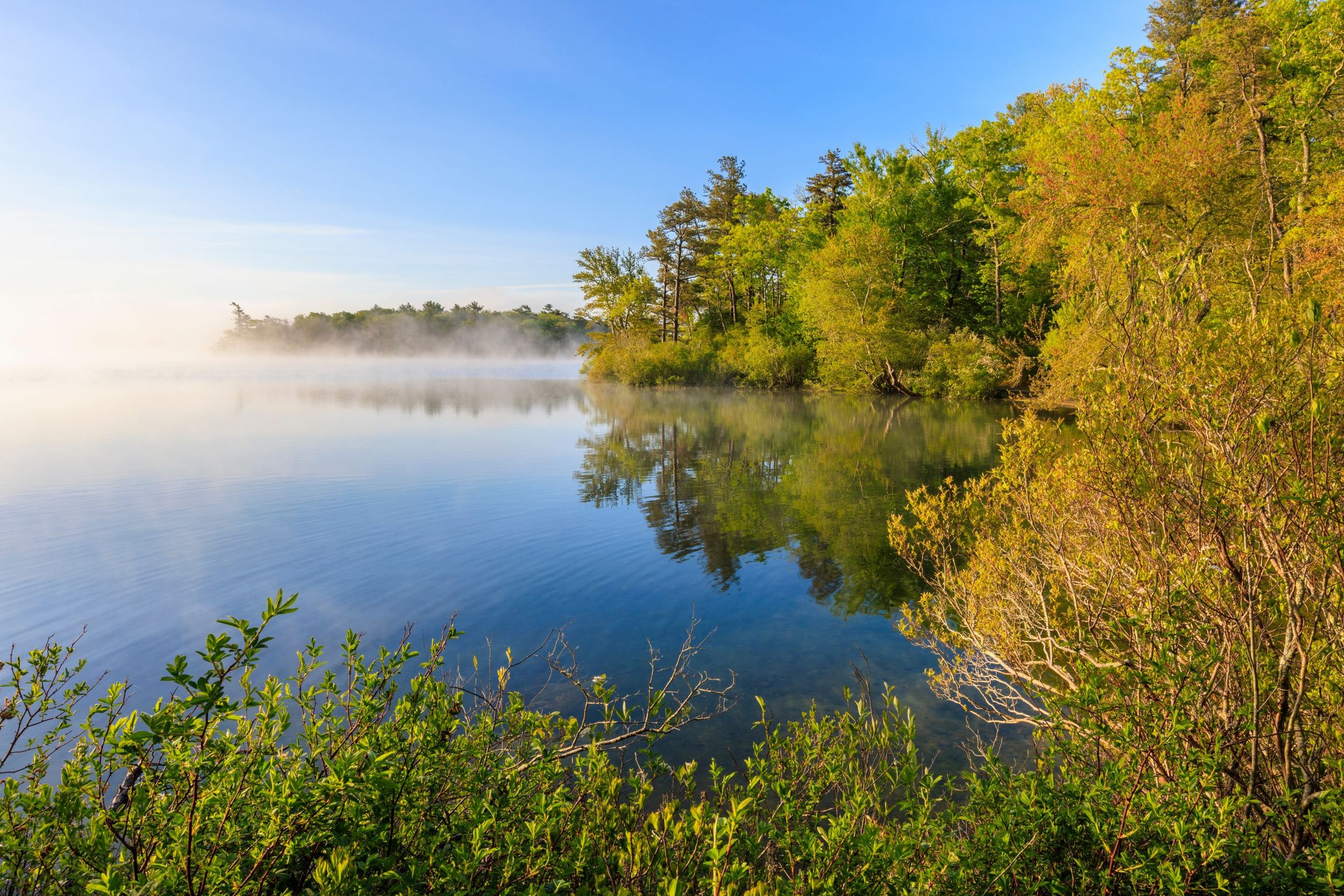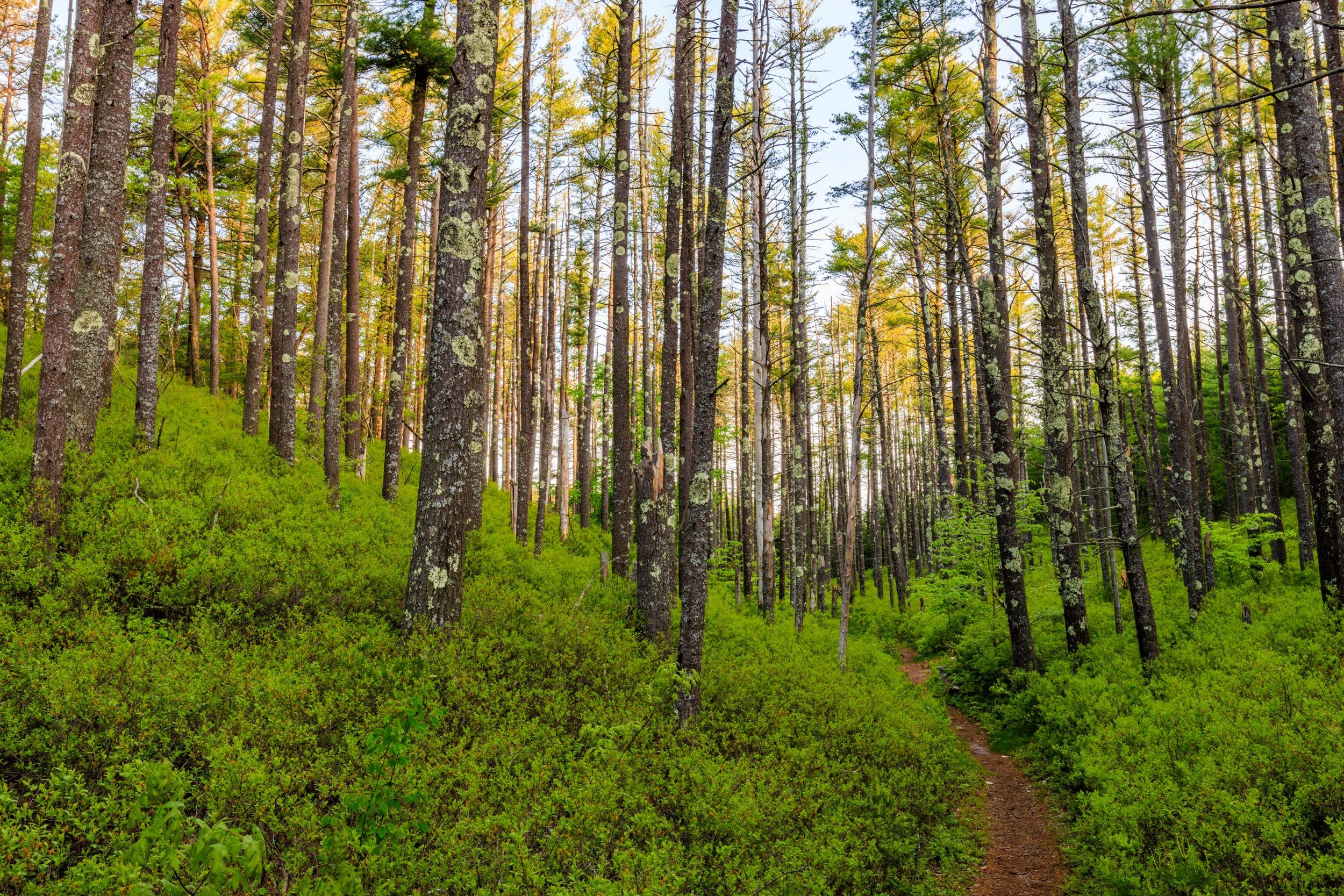Read Time: 3 min
By Karen Grey, Executive Director
As we were sealing the fate of the newest addition to Wildlands’ 550-acre Halfway Pond Conservation Area this past July, one of the sellers remarked, “Can you believe we started talking about this seven years ago?” He was surprised when I explained that it’s not unusual for projects to take a decade (or sometimes two) from start to finish. Establishing trust with those contemplating the fate of their land is the lynchpin to success, and building that trust requires an investment of time from both parties. Often, the landowner is surprised at how long a project can take, but rarely are we.
Wildlands Trust has methodically worked to build the relationships necessary to protect the last four privately held parcels within our largest holding, the Halfway Pond Conservation Area in Plymouth, for the past thirty years. We successfully protected three of the four parcels by 2015 before turning our sights toward the jewel in the crown, the 30-acre property owned by the Advaita Meditation Center (AMC), headquartered in Waltham. AMC had purchased the land and its accompanying 11,000-square-foot building as a retreat center in the 1980s, and by 2015, its aging membership was rethinking the organization’s future. For the past seven years, we have worked with AMC to contemplate a purchase of the property by Wildlands that would include a term tenancy for AMC to continue using the retreat center several times a year. On July 26, 2022, we celebrated the consummation of this win-win-win scenario for Wildlands, AMC, and the people of Plymouth.
Halfway Pond Conservation Area is a significant holding within the Atlantic Coastal Woodland (ACW), a 20,000-acre forested corridor in Southeastern Massachusetts spanning from Carver and Wareham in the west and through Plymouth to Cape Cod Bay in the east. Wildlands Trust has focused much of its work over the last 50 years on protecting this landscape, recognized as the largest contiguous forest in one of the fastest-growing regions in the Northeastern United States. The ACW is an intact ecosystem home to globally rare pine barrens and coastal plain ponds with huge sections uninterrupted by roads and development. Other iconic landscape features of the ACW include wooded wetlands, cranberry bog complexes, and a mosaic of pitch pine, scrub oak, and scattered ponds with rare species found nowhere else in the world; ACW has the second-largest remaining tract of Coastal Pine Barrens worldwide. Globally rare plants sit upon deep glacial deposits to filter and protect the largest drinking water aquifer in Massachusetts, the Plymouth-Carver Sole Source Aquifer.
Large-scale development projects continually threaten to fragment and denigrate the ecological integrity of this vital landscape. We are delighted that this property is now permanently protected. Plans are underway to expand trail systems and establish a stewardship training center on the property.
